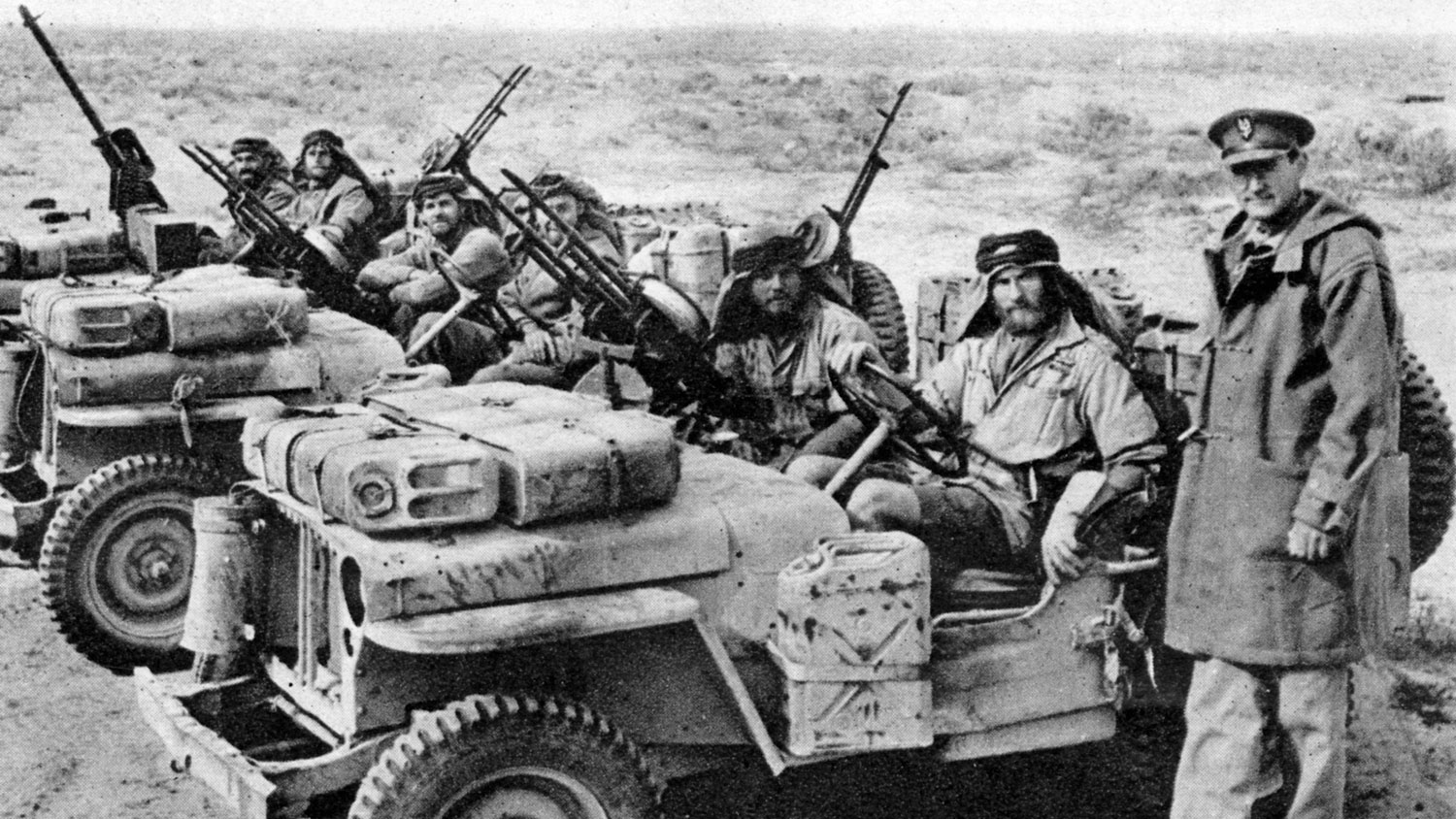This time it's personal: Hitler's outrage at the Special Air Service and Paddy Mayne
While Adolf Hitler portrayed himself as being all powerful, there was a thorn in his side that constantly bothered him.
He saw the bold actions of the Special Air Service, as depicted in the BBC's Second World War drama SAS Rogue Heroes now back for a second series, as a direct challenge to his authority and a personal affront.
And once the unit's founder Colonel David Stirling was captured during a mission in Tunisia in January 1943, the legendary Lieutenant Colonel Blair 'Paddy' Mayne was next to be placed in the Fuhrer's crosshairs.
In SAS Daggers Drawn, author Damien Lewis' latest book that delves into the factors that contributed to the Special Air Service becoming a formidable fighting force during the Second World War, the historian said: "In light of Nazi Germany's predations, Mayne had become the ghost commander of a ghost regiment, one that dare not speak its name."
These British Special Forces men were undertaking operations deep behind enemy lines such as blowing up vital enemy railway lines, factories making V-1 flying bombs and targeting senior commanders to cut "the head off the Nazi snake" as they referred to it.
The aim was to ensure enemy troops would never feel safe, no matter where they might be.

In response to the Special Air Service's many successful operations, the "apoplectic" Hitler had ordered the training of a 500-strong, bespoke, German paratrooper force to go hunting the SAS and, in October 1942, authored the infamous Commando Order.
Claiming to be in response to the "especially brutal and treacherous" behaviour of Allied forces, the Commando Order stated that "British sabotage troops and their accomplices... shall be killed without mercy in battle by German troops wherever they are encountered".
It added: "From now on all enemies encountered by German troops on so-called Commando expeditions in Europe or Africa whether ostensibly uniformed soldiers or sabotage agents with or without weapons are to be annihilated both in battle and in flight to the last man.
"Even if these wretches on being discovered appear to be about to surrender, all mercy shall be refused them as a matter of principle."
Whether you were in uniform or out of uniform, armed or unarmed, wanting to surrender or not wanting to surrender, you would be taken captive and kept alive only for long enough for the SS or Gestapo to question and then murder you.
Therefore, that personal animosity went both ways as Mr Lewis, author of The Ministry of Ungentlemanly Warfare, explains to BFBS Forces News, saying: "By now, the SAS knew that over 100 of their fellows who had been captured, had been tortured and murdered in the most horrific ways by the enemy against all the rules of war.
"So you could imagine the degree of animosity that sizzled backwards and forwards.
"It was a very personal thing by war's end."
SAS personnel were acutely aware that to be captured on an operation behind enemy lines was a death sentence.
The rule was, if they feared they were going to get captured, they were to remove anything marking them out as being Special Forces such as their distinctive red berets and winged dagger cap badges.
Instead, the men wore black tank regiment berets and never referred to themselves on the radio as SAS, instead they were known as The Little Ones.
There was to be complete radio silence about the location of Lt Col Paddy Mayne.
Mr Lewis has never been able to understand Hitler's hatred of Special Forces personnel and believes his response was "irrational and a complete overreaction".
The SAS conducted various operations aiming to assassinate high-ranking members of the Nazi regime, such as Reinhard Heydrich during Operation Anthropoid.
However, Mr Lewis struggles to understand why the actions of Mayne's men elicited such a strong response.
Perhaps Hitler was afraid of the deadly consequences of not taking their actions seriously and how close they could potentially come to killing him.









